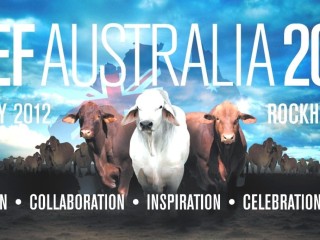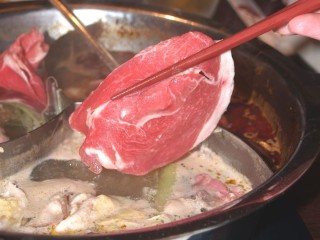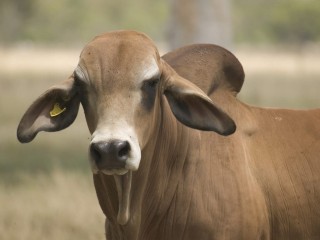Should Beef Australia be held every two years?
 Beef Australia is seeking visitor and exhibitor feedback as it considers whether to change from a triennial program to holding Australia’s national beef industry exhibition event every two years. Beef Australia Expos are the biggest and most comprehensive cattle industry events in the nation. They are currently held every three years in Rockhampton, Central Queensland, with the next event due in May 2012. “The Beef Australia board would like to consider whether that goal could be better achieved by holding the event more regularly,” event chairman Geoff Murphy said. “But before we can consider that, we need a good understanding of what that change would mean to the local community, the beef industry, the businesses that participate, and the visitors who come from across Australia and around the world to attend.” CQ University is conducting two online surveys – one on community views, and the other to gather feedback from exhibitors and cattle producers. Both are confidential, and take 10 minutes or less to complete. The survey can be accessed here.
Beef Australia is seeking visitor and exhibitor feedback as it considers whether to change from a triennial program to holding Australia’s national beef industry exhibition event every two years. Beef Australia Expos are the biggest and most comprehensive cattle industry events in the nation. They are currently held every three years in Rockhampton, Central Queensland, with the next event due in May 2012. “The Beef Australia board would like to consider whether that goal could be better achieved by holding the event more regularly,” event chairman Geoff Murphy said. “But before we can consider that, we need a good understanding of what that change would mean to the local community, the beef industry, the businesses that participate, and the visitors who come from across Australia and around the world to attend.” CQ University is conducting two online surveys – one on community views, and the other to gather feedback from exhibitors and cattle producers. Both are confidential, and take 10 minutes or less to complete. The survey can be accessed here.
Japan radiation testing extends to wholesale markets
While Japanese retailers are conducting their own independent radiation testing for their beef products in an effort to reassure consumers, meat markets and major meat producers are also moving to introduce all-cattle testing systems.
Local media reports that the Tokyo and Saitama meat markets began all-cattle testing from September 5, while the Osaka Meat Market began similar tests from September 8. Only tested negative carcases were eligible for sale at the Osaka market from September 9. Major Japanese meat packer Nippon Ham has introduced radiation testing systems at all of its production facilities, while another national meat wholesaler and processor Starzen has also begun conducting independent radiation testing for all Japanese Wagyu and domestic beef handled by its factories.
Japan considers tighter BSE test stance
 The Nihon Nogyo Shimbun newspaper reported that Japan's current rigorous but costly BSE risk management system, in place since the first BSE detection in Japan in September 2001 was coming under review. Some industry stakeholders are calling for the current prefecture-level testing of all Japanese domestic cattle for BSE before slaughter to be revised due to costs and other issues. Others, however, claim that all-cattle testing is still needed in order to ensure safety and reassure consumers. The modality of BSE-screening measures may be discussed actively from here on as Japan gains negligible BSE risk status from the World Organisation for Animal Health from 2013, the report said.
The Nihon Nogyo Shimbun newspaper reported that Japan's current rigorous but costly BSE risk management system, in place since the first BSE detection in Japan in September 2001 was coming under review. Some industry stakeholders are calling for the current prefecture-level testing of all Japanese domestic cattle for BSE before slaughter to be revised due to costs and other issues. Others, however, claim that all-cattle testing is still needed in order to ensure safety and reassure consumers. The modality of BSE-screening measures may be discussed actively from here on as Japan gains negligible BSE risk status from the World Organisation for Animal Health from 2013, the report said.
Consider costs to farmers under carbon tax: NFF
The National Farmers Federation has called on Federal MPs to consider the costs that the carbon tax will impose on Australian farmers when debating draft carbon tax legislation, which was Federal Parliament yesterday. NFF President Jock Laurie said suggestions in Canberra that agriculture will be a big winner out of the carbon tax are misleading, and urged MPs to consider all details of the impact of the tax on farmers. Australian agriculture had reduced its emissions by more than 40 percent in the past 20 years. The carbon tax would provide further costs that would add further difficulty and complexity for farmers in trying to compete in international markets. “We are particularly concerned about the impact of the carbon tax on parts of the agricultural supply chain, particularly food processors, and what this will mean for our farmers,” Mr Laurie said. “It all comes down to the figures – the independent figures from the Australian Farm Institute that show that under a $23 per tonne carbon tax, farmers will be slugged anywhere from $1,000 for an average Australian sheep farm to $10,500 for an average Australian cotton farm”.
Stock routes at risk under new system
 Queensland landholders are concerned about a Bill introduced to Queensland parliament this week that would give Local Governments stronger powers to manage the state’s 72,000-kilometre stock route network. AgForce Cattle director Peter Hall expressed concern that the Bill will make stock routes a ‘cash cow’ for local governments, while offering no assurance that revenue raised will be invested back into protecting the network. Mr Hall said the Bill recommends producers pay for their livestock to regularly graze sections of the stock route under “Grazing Authorities” (GA’s), but said the rents charged could be far higher than compatible leasehold land. "The changes give local councils the right to strike annual grazing fees up to 3pc of the stock routes unimproved capital value (UCV) – that is double the land rents charged by the state government on all other leasehold grazing country,” he said. “We don’t object to paying more, but we think it’s only fair fees are comparable to leasehold land rentals that are charged at 1.5pc of UCV.”
Queensland landholders are concerned about a Bill introduced to Queensland parliament this week that would give Local Governments stronger powers to manage the state’s 72,000-kilometre stock route network. AgForce Cattle director Peter Hall expressed concern that the Bill will make stock routes a ‘cash cow’ for local governments, while offering no assurance that revenue raised will be invested back into protecting the network. Mr Hall said the Bill recommends producers pay for their livestock to regularly graze sections of the stock route under “Grazing Authorities” (GA’s), but said the rents charged could be far higher than compatible leasehold land. "The changes give local councils the right to strike annual grazing fees up to 3pc of the stock routes unimproved capital value (UCV) – that is double the land rents charged by the state government on all other leasehold grazing country,” he said. “We don’t object to paying more, but we think it’s only fair fees are comparable to leasehold land rentals that are charged at 1.5pc of UCV.”
